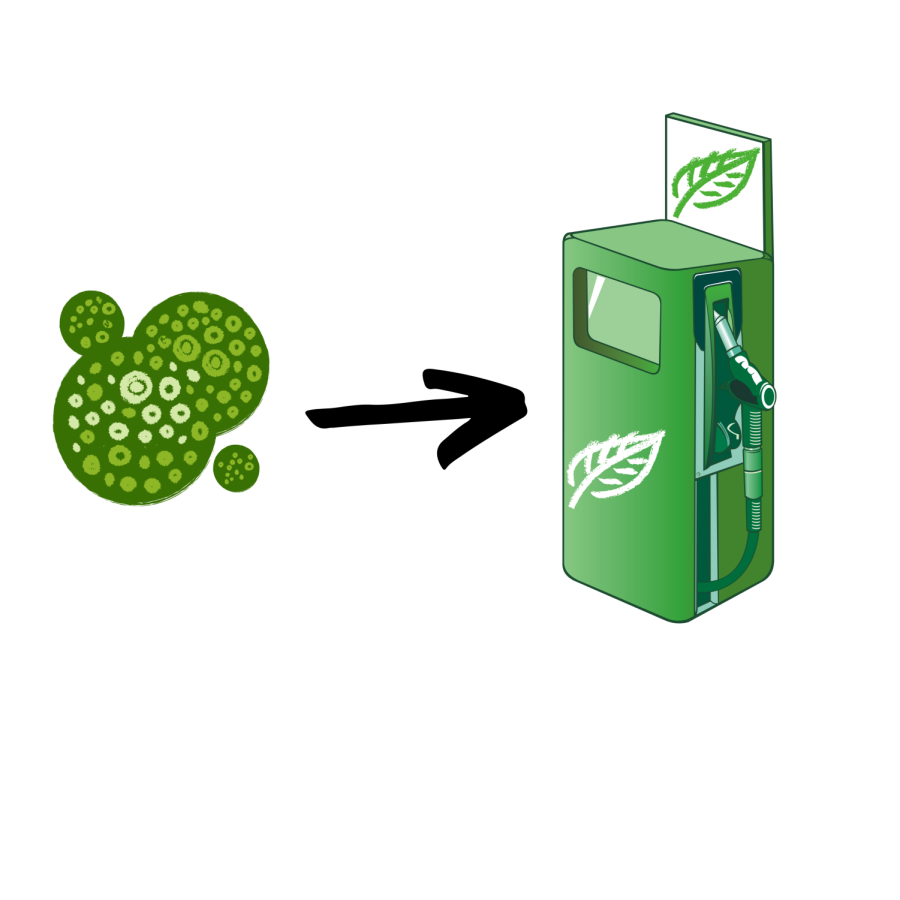Is algae the answer to the oil crisis?
Used with permission by Canva/Sketchify Education/Painter06/Canva Creative Studio
With global warming worsening and the world’s reliance on oil increasing, scientists are looking for greener alternatives to solve this problem.
March 10, 2023
Oil is the key component in what makes our cars run, our buildings warm and a large aid in generating electricity. However, drilling for oil is extremely costly and damaging to the environment.
With scientists looking for greener alternatives to this slimy situation, many have turned to algae to help reduce this oil crisis. Algae is a varied group of plants that is typically found in water. These plants go through photosynthesis which allows them to convert carbon dioxide into food using Earth’s greatest renewable resource – the sun.
Algae can be used to make a number of biofuels, including ethanol and biodiesel. But how does this photosynthesizing plant help with oil production? Energy companies select the most productive and efficient plants from the algae and add them to a tank of water that also contains fertilizing nutrients. Once the algae is exposed to sunlight, photosynthesis begins.
“The carbon dioxide is converted from the air into sugar and then the algae metabolizes the sugar into oil, which takes about a week. By the end of this process, the algae will have created up to 60% of their weight in oil,” said Chris Opfer from howstuffworks.com. “Next, the fuel maker must extract the oil. Pressing is a common extraction method. This is accomplished by either using a machine to physically squeeze the oil out or by using compressed carbon dioxide, which separates the oil through vaporization. The fuel maker then uses a catalyst — sodium hydroxide and methanol, for example — to remove oxygen from the oil, replacing it with hydrogen to create diesel biofuel.”
Companies have already implemented this greener solution on a large scale. In November 2011, United Airlines powered a flight from Chicago to Houston using algae-based fuel which was the first commercial domestic flight to use this new alternative.
Not only is algae a greener alternative to drilling into the earth for oil, but it has also long been considered to be better than crops such as corn, soybeans and wheat as algae has a much higher crop yield (up to 10 times more oil per acre). As the cultivation and harvesting process of algae becomes less costly, and the prices of crude oil continue to increase, algae biofuel could very well be a solution to ensuring a healthier planet and a more prominent feature in propelling our world.









